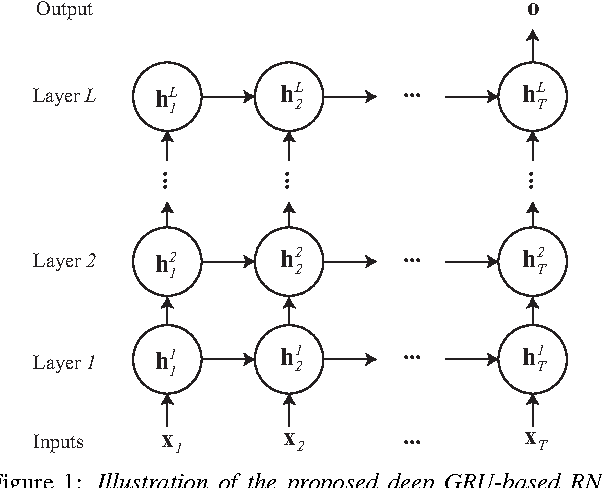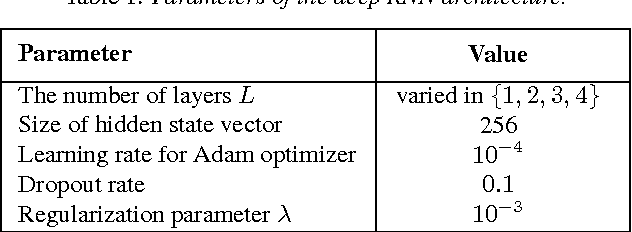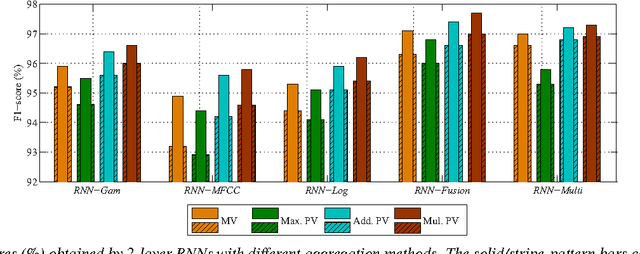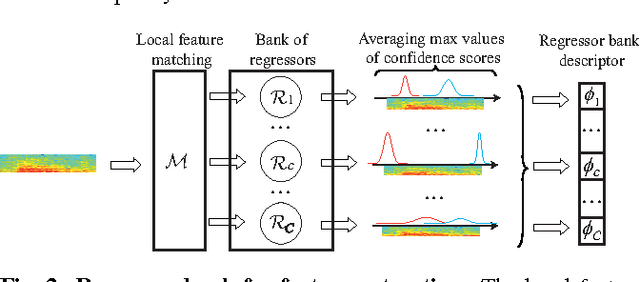Radoslaw Mazur
Audio Scene Classification with Deep Recurrent Neural Networks
Jun 05, 2017



Abstract:We introduce in this work an efficient approach for audio scene classification using deep recurrent neural networks. An audio scene is firstly transformed into a sequence of high-level label tree embedding feature vectors. The vector sequence is then divided into multiple subsequences on which a deep GRU-based recurrent neural network is trained for sequence-to-label classification. The global predicted label for the entire sequence is finally obtained via aggregation of subsequence classification outputs. We will show that our approach obtains an F1-score of 97.7% on the LITIS Rouen dataset, which is the largest dataset publicly available for the task. Compared to the best previously reported result on the dataset, our approach is able to reduce the relative classification error by 35.3%.
Learning Compact Structural Representations for Audio Events Using Regressor Banks
Apr 29, 2016



Abstract:We introduce a new learned descriptor for audio signals which is efficient for event representation. The entries of the descriptor are produced by evaluating a set of regressors on the input signal. The regressors are class-specific and trained using the random regression forests framework. Given an input signal, each regressor estimates the onset and offset positions of the target event. The estimation confidence scores output by a regressor are then used to quantify how the target event aligns with the temporal structure of the corresponding category. Our proposed descriptor has two advantages. First, it is compact, i.e. the dimensionality of the descriptor is equal to the number of event classes. Second, we show that even simple linear classification models, trained on our descriptor, yield better accuracies on audio event classification task than not only the nonlinear baselines but also the state-of-the-art results.
 Add to Chrome
Add to Chrome Add to Firefox
Add to Firefox Add to Edge
Add to Edge